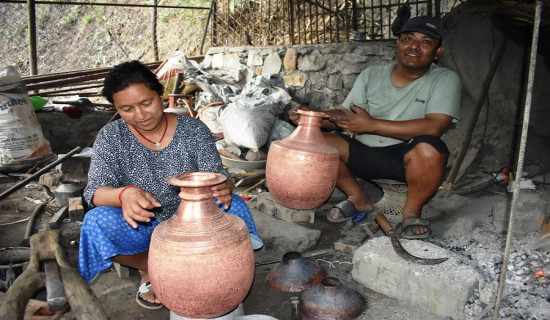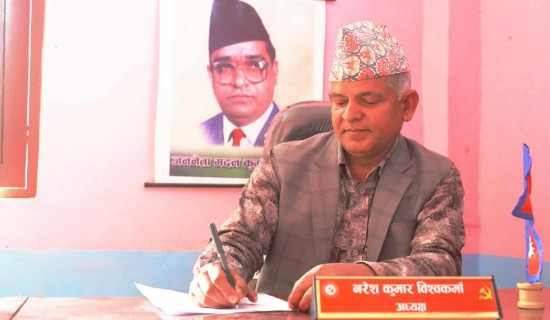- Tuesday, 13 May 2025
Caring For New Mothers
After months of being celebrated, taken care of and making women feel special during pregnancy, many women are left invisible the moment they give birth. In Nepal, the fourth trimester remains forgotten, making the postpartum period an overwhelming and vulnerable time for new mothers. It’s time we stop ignoring new mothers and recognise their needs equally to the babies.
In the context of Nepal, where awareness about the postpartum period is still limited, many women are not given the care and respect they need after giving birth. Often, they are treated as if their "job" is done and are expected to quickly return to normal life. However, what many fail to realise is that the postpartum period is a critical time, not just for the baby, but for the mother as well.
The post-partum journey is a period after childbirth, typically lasting 6-8 weeks, during which a woman's body and hormones return to a non-pregnant state. However, it can vary from woman to woman and last longer if there are complications. With physical changes such as fatigue, shrinking uterus, vaginal discharge, breast engorgement, changes in bowel habits, urinary or excretory problems, and extreme emotional challenges such as postpartum blues, postpartum depression, postpartum anxiety, and psychosis in some rare cases and so on, this phase involves immense physical, emotional, and psychological changes.
However, the lack of awareness on this topic has cost many new mothers their health and happiness. The first thing people usually ask after a birth is, “Is the baby okay?' but almost no one asks, “And how is the mother doing?” as if her well-being no longer matters the moment the baby arrives. While we all might be happy and busy welcoming a new member to the family, we might unintentionally fail to acknowledge the difficult time the new mother is going through.
When extreme love and care are given to the mother during her pregnancy period shifts entirely to the newborn, it might be extremely hard for them to cope with it. They might feel unimportant, lonely, confused and overwhelmed, especially when they are going through a lot of changes. This emotional isolation is not just heart-breaking, but it’s dangerous. Globally, 10 per cent of pregnant women and 13 per cent of postpartum women experience mental health disorders, primarily depression.
In Nepal, the numbers are even more alarming: 15.6 per cent of women face mental health challenges during pregnancy, and 19.8 per cent after childbirth. Maternal suicide, a deeply preventable tragedy, has become one of the leading causes of death among women of reproductive age. These are not just statistics; they are silent cries for help, too often unheard. Unable to express the difficulties they're feeling, many might assign their struggles to personal weakness rather than illness. It is not wise to ignore the needs of a new mother as she reels from physical frailty and mental trauma at this stage.
Postpartum care should involve supporting the mother as she adjusts to her new role and responsibilities and not leaving them to shoulder the weight of motherhood alone. The support of family is crucial during this period. Above all, the husband/the father must rise to the moment with steady love, patience, and care. His presence and understanding can make all the difference, helping the mother navigate this overwhelming new chapter feeling valued, supported, and emotionally safe.



-original-thumb.jpg)













